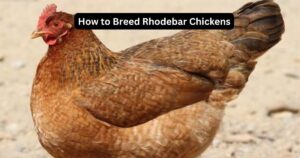Guinea pigs, like all pets, have a natural scent. However, guinea pigs do not have a strong or unpleasant odor if cared for properly. Their smell is usually mild and not noticeable unless you are very close to them.
Whether or not a guinea pig smells depends on several factors, including their environment, health, and hygiene.
Natural Odor of Guinea Pigs
Guinea pigs have a natural scent that comes from their skin and fur. This scent is mild and should not be offensive. Unlike some other pets, such as ferrets or hamsters, guinea pigs do not produce strong body odors.
Their scent is generally neutral and often goes unnoticed by their owners. However, if a guinea pig has a particularly strong or unpleasant smell, it could be a sign of a health problem or poor hygiene.
How To Keep Guinea Pigs From Stinking?
Cleanliness
One of the main factors that influence whether a guinea pig smells is the cleanliness of its living environment. Guinea pigs need a clean cage to stay healthy and odor-free.
If their cage is not cleaned regularly, waste can build up, leading to a strong and unpleasant smell. It is essential to clean the cage at least once a week and spot-clean it daily to remove any soiled bedding or uneaten food.
Using the right type of bedding is also important. Some types of bedding, such as cedar or pine shavings, can have a strong scent that mixes with the guinea pig’s natural odor. These types of bedding can also cause respiratory issues in guinea pigs. Instead, choose unscented paper-based or aspen bedding, which is safer and better at controlling odors.
Diet and Its Impact on Odor
A guinea pig’s diet can also affect its smell. A healthy diet that includes fresh hay, vegetables, and pellets will help keep your guinea pig’s digestive system working properly. When guinea pigs eat a balanced diet, their waste will have a milder odor.
In contrast, a poor diet can lead to digestive problems, resulting in more potent-smelling waste. It is important to provide your guinea pig with fresh food and water daily and remove any uneaten food before it spoils.
Health Issues That Can Cause Odor
If a guinea pig has an unusually strong or unpleasant smell, it could be a sign of a health issue. For example, a guinea pig with a urinary tract infection (UTI) may have a strong smell of urine. Similarly, dental problems, skin infections, or issues with their scent glands can also cause odors.
If you notice a sudden change in your guinea pig’s smell, it is important to consult a veterinarian. Regular health checks can help prevent these problems and ensure that your guinea pig stays healthy and odor-free.
Grooming and Its Role in Odor Control
Guinea pigs groom themselves regularly, which helps keep their fur clean and free of odors. However, they may need some assistance, especially if they have long hair. Long-haired guinea pigs are more prone to matting, which can trap dirt and odors.
Regular brushing can help prevent this and keep their fur clean and fresh. In some cases, a gentle bath may be necessary, but this should be done sparingly to avoid drying out their skin.
Short-haired guinea pigs generally require less grooming, but they still benefit from occasional brushing to remove loose fur and debris. Regular grooming not only helps control odors but also allows you to check for any signs of health issues, such as skin problems or parasites.
The Role of Scent Glands
Guinea pigs have scent glands located near their anus, which they use to mark their territory. These glands can produce a strong odor, especially in male guinea pigs. The scent glands may need to be cleaned occasionally if they become dirty or impacted.
To clean the glands, use a damp cloth or a cotton swab dipped in warm water. Be gentle, as this area is sensitive, and consult a veterinarian if you are unsure how to do it properly.
Preventing Quinea Pig’s Odor in Your Home
To prevent your guinea pig’s odor from spreading throughout your home, it is important to place their cage in a well-ventilated area. Good ventilation helps reduce the buildup of odors and keeps the air fresh.
Avoid placing the cage in areas with poor air circulation, such as closets or small rooms. Additionally, using an air purifier in the room where the guinea pig lives can help remove any lingering odors.
Regular cleaning of the cage and accessories, such as food bowls, water bottles, and toys, is also essential. These items can harbor bacteria and odors if not cleaned regularly. Use mild, unscented soap and water to clean these items, and rinse them thoroughly before returning them to the cage.
So, Do Guinea Pigs Smell?
Guinea pigs do not have a strong or offensive smell when they are cared for properly. Their natural odor is mild and usually goes unnoticed.
However, poor hygiene, an unclean cage, or health issues can lead to unpleasant smells. By maintaining a clean living environment, providing a balanced diet, and regularly grooming your guinea pig, you can ensure that your pet remains healthy and odor-free.
If you notice any unusual or strong odors, it is important to seek veterinary advice to rule out any underlying health problems. With proper care, your guinea pig can be a delightful and odorless companion.




